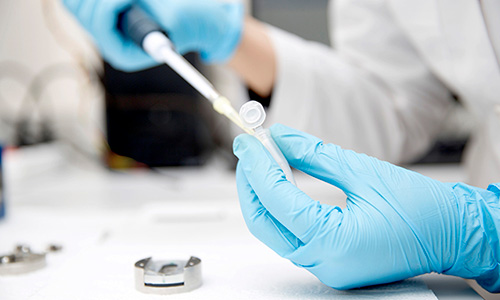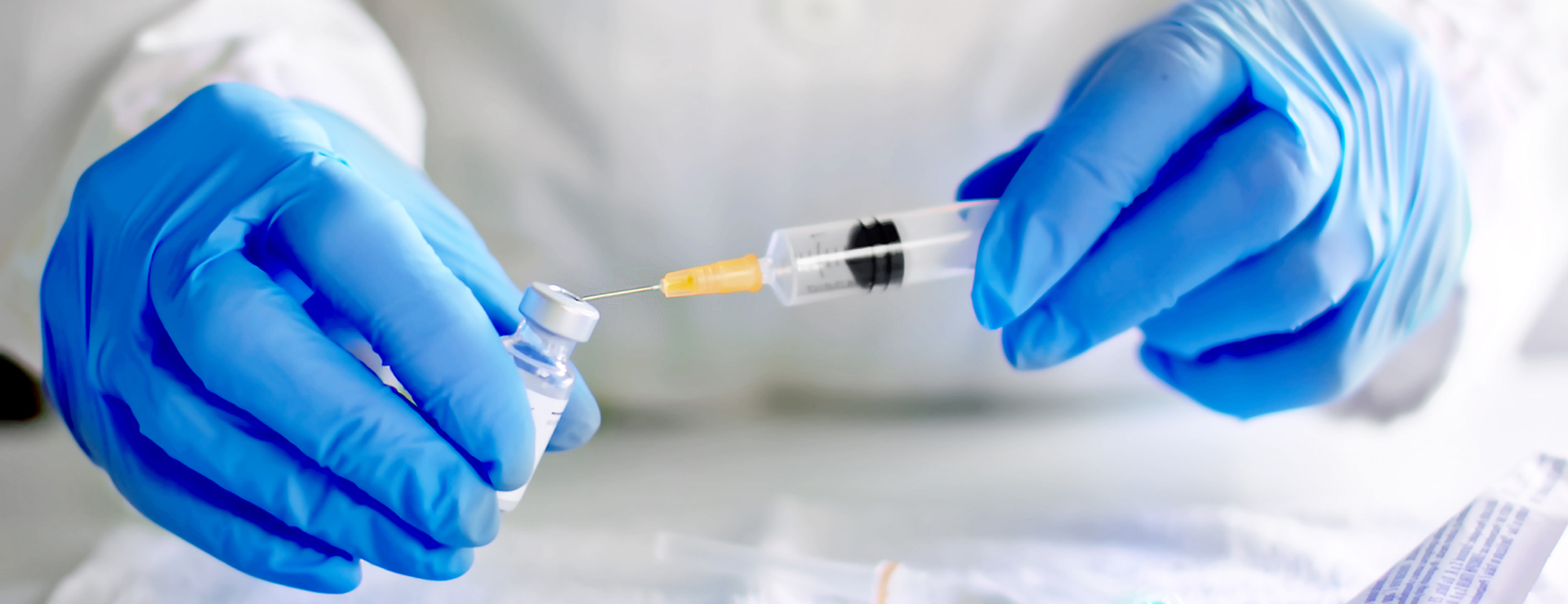COVID-19 Vaccine: What You Need to Know
Featured Experts:
"The U.S. Food and Drug Administration (FDA) has begun authorizing use of vaccines for the coronavirus that causes COVID-19. Lisa Maragakis, M.D., M.P.H., senior director of infection prevention, and Gabor Kelen, M.D., director of Johns Hopkins Office of Critical Event Preparedness and Response, address common questions and explain how a vaccine could affect the current pandemic.
How do vaccines work?
Vaccines help people develop immunity to a virus or other germ. A vaccine introduces a less harmful part of that germ — or something created to look or behave like it — into a person’s body. The body’s immune system develops antibodies that fight that particular germ and keep the person from getting sick from it. Later, if the person encounters that germ again, their immune system can “recognize” it and “remember” how to fight it off.
Is there a vaccine for the coronavirus disease?
Pfizer’s vaccine was authorized on Dec. 12, 2020, and Moderna’s version on Dec. 18, 2020.
How will a vaccine prevent COVID-19?
The coronavirus that causes COVID-19 has spikes of protein on each viral particle. These spikes help the viruses attach to cells and cause disease. Some of the coronavirus vaccines in development are designed to help the body “recognize” these spike proteins and fight the coronavirus that has them.
An effective vaccine will protect a person who receives it by lowering their chances of getting COVID-19 if they encounter the coronavirus. Widespread vaccination for the coronavirus means that the virus will not infect as many people. This will limit spread through communities.
Both Pfizer and Moderna report that their vaccines show approximately 95% efficacy at preventing both mild and severe symptoms of COVID-19. This level of efficacy appears to apply across age groups, racial and ethnic groups, and both sexes, as reported in the Pfizer trial.

Coronavirus (COVID-19) Email Alerts
Sign up to receive coronavirus (COVID-19) email updates from Johns Hopkins Medicine.Safety and Effectiveness of a COVID-19 Vaccine
How will we know if a COVID-19 vaccine is safe and effective?
In order to be declared safe and effective, a COVID-19 vaccine must pass certain tests and standards. Organizations such as the National Academy of Sciences, the National Institutes for Health, and the Food and Drug Administration (FDA) use scientific data from research to help decide if and when new drugs and vaccines can become available to the public. It is important to note that you cannot get COVID-19 from a vaccine. The vaccines contain proteins or other biological substances to stimulate the immune response, but not the coronavirus itself.
Learn more about the safety of the COVID-19 vaccines.
How Do We Know a COVID-19 Vaccine Will Be Safe and Effective?
How long will it protect me? Will I have to get a COVID-19 shot every year?
A few people who have had COVID-19 have apparently had a second, often milder case of the disease, and researchers are exploring what this means in terms of how long immunity from the coronavirus lasts. Vaccine developers are looking at ways to boost the effectiveness of a vaccine so that it provides longer immune protection than a natural infection with the coronavirus.
Will the vaccine work if I’ve already had COVID-19 or tested positive for the coronavirus?
The CDC notes that people who have already had COVID-19 or tested positive may still benefit from getting the COVID-19 vaccination. There is not enough information currently available to say if or for how long people are protected from getting COVID-19 after they have had it (natural immunity). Early evidence suggests natural immunity from COVID-19 may not last very long, but more studies are needed to better understand this.
If I get a coronavirus vaccination, do I still have to wear a mask? Physical distance?
Yes. It may take time for everyone who wants a COVID-19 vaccination to get one. A vaccine that is 95% effective means that about 1 out of 20 people who get it may not have protection from getting the illness.
Also, while the vaccine may prevent you from getting sick, it is unknown at this time if you can still carry and transmit the virus to others. That is why, until more is understood about how well the vaccine works, continuing with precautions such as mask-wearing and physical distancing will be important.
Availability of a COVID-19 Vaccine
Will there be enough vaccine for everyone who wants it?
Now that the Food and Drug Administration (FDA) has authorized COVID-19 vaccines, initial quantities of the vaccine are being distributed across the United States.
Because it will take a while to make and distribute enough of the vaccine for everyone who wishes to be vaccinated against COVID-19, the U.S. Centers for Disease Control and Prevention (CDC) is recommending groups of people who should get priority. The CDC has been working closely with state health departments and partners to develop these recommendations.
If you are a Johns Hopkins Medicine patient, visit our COVID-19 Vaccine Information and Updates page for all current information on getting vaccinated. Your state’s health department website can also provide updates on vaccine distribution in your area.
Will it be easier or harder to get in some areas?
There could be differences in availability from one place to another. Availability might depend on how much vaccine is produced and how it needs to be transported and stored. For instance, some vaccines must be kept frozen at very low temperatures in order to be effective. Every effort will be made to distribute the vaccine fairly.
Will older adults receive a COVID-19 vaccine?
The CDC is providing recommendations on the order of who receives vaccines. The first group to receive authorized COVID-19 vaccines are frontline healthcare workers and residents of long-term care facilities. Adults, 75 and older, are expected to receive vaccines, possibly starting in January.
Review the CDC’s guidelines for who gets vaccinated first when supplies are limited.
Will children receive a COVID-19 vaccine?
The Food and Drug Administration has authorized the Pfizer-BioNTech vaccine for distribution to individuals ages 16 years and older.
No COVID-19 vaccine has been authorized for children under 16. At least one trial including participants between age 12 and 18 with their parents’ permission is in progress. But it may be late 2021 or even 2022 before there is enough evidence on the timing, safety, effectiveness and practical aspects of vaccinating children for the coronavirus, especially children under age 12."



No comments:
Post a Comment